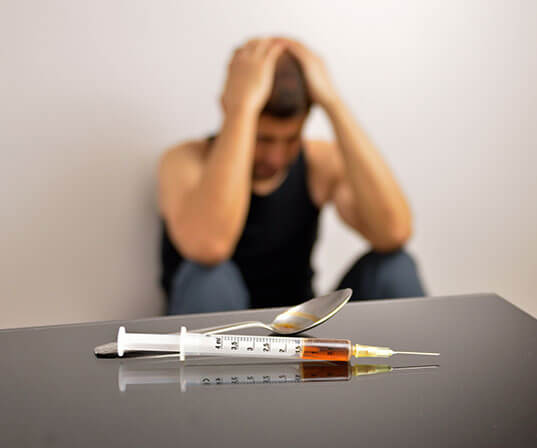Heroin (Diacetylmorphine) is a semi-synthetic opioid processed from Morphine. Heroin is an illegal and highly addictive substance with a strongly pronounced euphoric effect. It is the most abused opiate nowadays.
Heroin was synthesized in 1874, and initially and ironically was used to treat morphine addiction. Nowadays Heroin is known as the most destructive and painful addiction in the world that damages both the body and psyche. Yet heroin addiction is a reversible condition, recovery can be a lifelong process.
Forms. Pure heroin is a white powder with a bitter taste. Street heroin is rarely pure. Street heroin varies in color from pure white to dark brown due to added impurities: milk sugar, powdered milk, or quinine. The black form of the drug known as “black tar” is mostly produced in Mexico. The other largest producers of heroin are Afghanistan, Pakistan, Burma, Thailand, Vietnam, Columbia.


